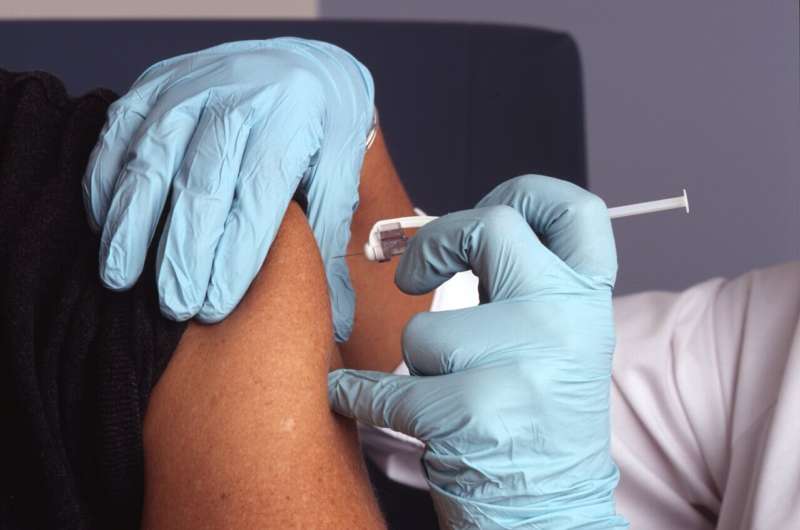Some hoped FDA approval of Pfizer's COVID vaccine would convince unvaccinated Americans. It didn't, study finds

After the Food and Drug Administration approved Pfizer-BioNTech's COVID-19 vaccine in August, public health experts were hopeful vaccine uptake would skyrocket.
But a study published Wednesday in JAMA Network Open found the shift from emergency use authorization of the vaccine to full approval did not sway unvaccinated Americans.
Researchers from the University of Utah analyzed vaccination data from the Centers for Disease Control and Prevention starting July 25, a month before full FDA approval, to Sept. 9, the day before President Joe Biden made his vaccine mandate announcement.
Using the vaccination rate leading up to full approval, they estimated how many doses would have been administered compared to the actual recorded number.
Study authors found FDA approval was associated with an overall 36% increase in vaccinations, but most were second doses. First doses, they found, were 16% lower than predicted.
Health experts are not surprised by the study's findings.
"The reason why people get vaccinated has very little correlation with whether or not something is approved or an EUA," said Dr. Jay W. Lee, a family physician and chief medical officer of Share Our Selves community health center in Orange County, California, who is not affiliated with the study.
Misinformation and misunderstanding about the vaccines has played a big part in resistance and hesitancy, health experts say, and most Americans have personal reasons for not getting the vaccine.
"Most public health people are kind of out of touch with the thinking of people who are resistant to the vaccine," said Terrie Moffitt, professor of psychology and neuroscience at Duke University. "They keep assuming that if we just give these people more information that they'll get vaccinations and what we're seeing is that it's not true."
Study authors compared U.S. numbers with vaccine uptake in the United Kingdom, where the regulatory status of Pfizer's vaccine was unaffected by the FDA's approval. Unlike vaccinations in the U.S., they found vaccination rates in the U.K. remained steady throughout the study period.
According to a Kaiser Family Foundation survey in June, three in 10 unvaccinated Americans said they would be more likely to get vaccinated if the FDA moved vaccines from emergency use to full approval.
But Moffitt said her own research suggests mistrust may be at the core of hesitancy and resistance.
She led a study that published in March drawing on a database tracking nearly 1,000 people born in 1972 and 1973 in a New Zealand town. Researchers asked participants last year to complete a survey gaging vaccine intentions shortly before vaccines became available there and matched individual responses to what they knew about their upbringing and personality style.
The Duke researchers found many of the vaccine-resistant or hesitant participants had adverse childhood experiences that may have affected their trust in authority. Moffit said the same likely holds true for Americans.
"That has left them with a legacy of mistrust and, in particular, mistrust of the government ... and policy makers have really underestimated how deep-seated that mistrust is," Moffitt said. "We're not going to break down that wall of mistrust by the FDA (approval). That's a little overly optimistic"
While FDA approval may have not had an effect on first doses, the University of Utah study found it was associated with a 77% relative increase in second doses. This shouldn't be ignored, health experts say, and suggests there may be some public benefit to full approval of COVID-19 vaccines.
"The data suggests that approval is still important and still communicates to a lot of people the safety of the vaccine," said lead author Elise Bailey, a PhD student at the University of Utah. "Regardless of how it changes their thinking, it seems to change some people's behavior."
(c)2022 USA Today
Distributed by Tribune Content Agency, LLC.





















